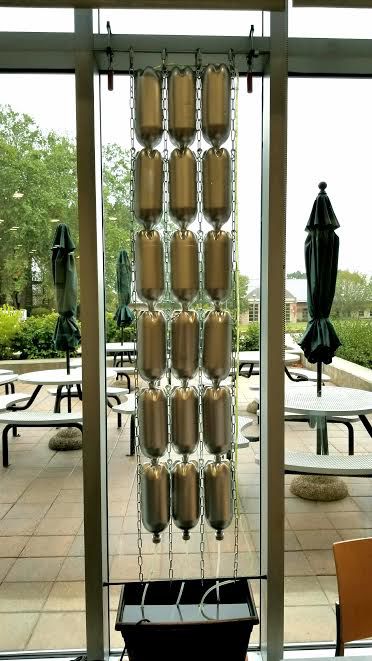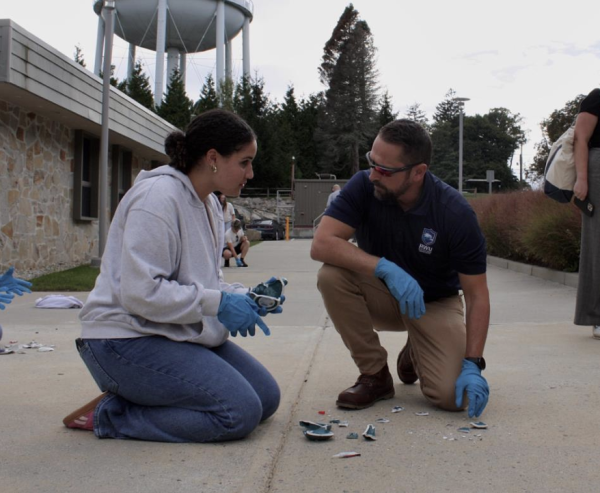Hydroponics: What is it? How does it work? How does it affect YOU?
It all started last year when a senior seminar class chose to work on developing hydroponicssystems on campus. Science major Grace Algeo and architecture major Rob Monahan worked together and partnered with Bon Appetit for support on the project. Bon Appetit used some of the food grown in the systems in the dining hall. They were so impressed with the success of the systems that they created an internship for someone to maintain them for this year. Senior environmental science major, Rachel Nadolny, was chosen for that position.
WHAT IS HYDROPONICS?
Hydroponics encompasses the process of growing plants without soil. Rather than receiving nutrients directly from the soil, the plants grow with the help of a nutrient solution. Nadolny manages the systems by growing the seeds and placing them into the systems. Then, she monitors their growth and growing conditions by checking for pH and electronic conductivity. She is also in charge of making the nutrient solution that substitutes for soil in the systems.
WHERE ARE THEY LOCATED ON CAMPUS?
There are currently hydroponics systems on campus. Two of the same systems are hanging within lower commons, which explains the large metal piece that students have seen hanging in the window there. In upper commons, there is one larger system, but it isn’t active yet. Nadolny is in the process of growing seeds and cleaning out that system.
HOW DOES IT BENEFIT
-THE ENVIRONMENT
-STUDENT BODY
Growing food hydroponically conserves water, as the system uses much less water in comparison to plants grown in soil. It also requires less space to grow plants in this way.
Students are benefitted as they have the opportunity to watch the plants grow and, indirectly, be a part of the experience. Also, there is definitely a possibility that some of these plants might be in what they are eating.
LONG TERM EFFECTS OF THE PROJECT
The goal of the hydroponics project is to provide food for RWU students that is locally grown. Right now, Nadolny is growing bayleaf lettuce and micro-greens, but there are many more opportunities out there. She plans on growing herbs such as basil, parsley and more leafy greens in the future, as the current systems have done well with smaller vegetables. Besides the general student body and environmental benefits, Nadolny maintains that managing the hydroponics systems has been a valuable learning experience.
“At the beginning of this semester, I was given the task to start the hydroponic systems. I had no idea where to begin. I had a meeting with Grace and [Café Manager] Josh Hennessy to discuss a plan for the systems this semester. After that initial meeting, I had to dive into it and it was very overwhelming,” said Nadolny. “Since starting the process I already have learned so much. I hope this internship will be as rewarding to future interns as it has been to me. This project could be an example for other disciplines on campus to do experiential projects.”







